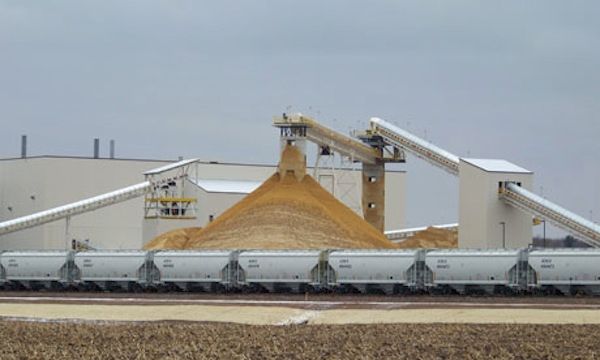Fracking Remains a Controversial Way to Retrieve Fossil Fuels

Energy experts now say that the “Rebirth of the Rust Belt” may emancipate the United States from much of its oil dependency by the year 2020, with states such as Ohio, Pennsylvania and Michigan on the front line.
The International Energy Agency released a study that suggests the US will surpass Saudi Arabia’s title as the world’s largest oil producer in less than a decade, with a process known as hydraulic fracturing, or “fracking,” which has put oil and natural gas output on a striking rise.
Fracking is a process in which millions of gallons of water, sand, and chemicals are pumped thousands of feet below the surface of the earth, freeing the fossil fuels trapped there. Fracking remains a controversial way to retrieve fossil fuels, however, with some communities near fracking production reporting bizarre health conditions.
US oil production has increased 7 percent since last year, and the IEA said the US would import roughly 2 million barrels a day in 2035 -- making it the fourth largest oil importer by 2030. Currently, it is the second largest oil importer.
Guy Caruso, former head of the US Energy Information Administration, said the boost in production could very well alter the American political climate assuming the IEA is right.
“For the most part, we have five to six energy-producing states. But in the coming years, you might have 20 to 25 states that become large energy producers. That could change the political landscape.”
The study does not, however, suggest that this peak implies extended energy independence for the US any time soon. The US will still need to rely on foreign sources to meet demands.
Whether or not fracking is a safe and environmentally responsible means of production has also been the subject of heated debate.
Duke University conducted an analysis of 426 shallow groundwater samples in Pennsylvania and found brine in rock more than a mile deep. These paths could let gas or water flow up after drilling, leading to runoff. However, the flows are not yet linked directly to fracking. Avner Vengosh, a professor at the Nicholas School of the Environment at the university, said the study suggests there is only “evidence of hydrologic connectivity.”
Other concerns, noted primarily by environmentalists, include whether or not the amount of water (5 to 7 gallons for each round) used to release the fossil fuels is worth the production boost. Additionally, there have been many concerns regarding fracking's affect on air quality.
Environmental groups, such as the Sierra Club, are worried about what production enthusiasm could do to the discussion about climate change. Michael Marx, director of the Sierra Club’s Beyond Oil campaign, said the changing climate will sooner or later force the US to accept responsibility.
“If we position ourselves as the second-largest exporter of oil in the world, as extreme climate events accelerate and the impacts become more extreme, there’s going to be more world attention and pressure for the U.S. to accept responsibility. It could alienate us in the international community.”
With a continued reliance on fossil fuels, the debate on alternative energy sources or means of production to obtain additional fossil fuels, will become an increasingly urgent issue to address.




